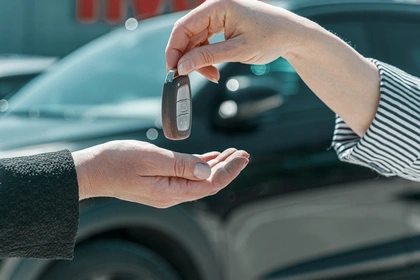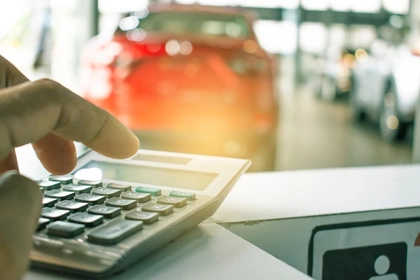Can I return my car to the finance company?
If you want to return your car to the finance company, the options available will depend on your individual circumstances and the terms and conditions of your car finance agreement. As with all regulated financial contracts, not least those arranged online or over the phone, you should have a cooling-off period. This typically allows you to change your mind and withdraw from the agreement within the first 14 days. These 14 days begin from the date that you sign your contract or from when you received a signed copy, whichever happened later.
To reject your loan during your cooling-off period, contact the lender as soon as possible. If you haven’t yet collected your car, they can then ask the dealership to reverse the deal and return the funds to them. But you may need to double-check whether you’re still contracted to buy the car. If you’ve only withdrawn from the car finance agreement and not the car sale, you might need to find another source of funds to complete the purchase.
What can I do if I can no longer afford my car finance repayments?
Whether you’ve lost your job or have less disposable income due to the rising cost of living, you might be struggling to afford your car finance repayments. If this strikes a chord with you, consider speaking to your car finance provider first.
It may feel uncomfortable but being honest about your situation could lead to a new payment plan that will better suit your needs.
Bear in mind that a reduced payment plan can affect your credit score.
You might also wish to look at refinancing your loan. Depending on your individual circumstances and eligibility, you might be able to refinance your car loan and find a new finance option with a lower interest rate or a longer loan term. This could help you lower your monthly repayments and keep your car. Note, a longer loan term can mean you pay more interest overall.
Do I have the right to voluntary termination?
If you can’t keep up with your finance payments and would like to return the car, voluntary termination might be worth considering. Under Section 99 of the Consumer Credit Act 1974, you have the legal right to voluntarily terminate your car finance agreement early.
However, it’s not quite as simple as just handing the car back. You’ll only qualify for voluntary termination once you’ve paid 50% of the total amount payable. This shouldn’t be confused with 50% of your car’s value or scheduled repayments; the percentage includes any fees and interest, as well as the balloon payment in the case of a PCP agreement.
If you’ve not yet reached this threshold, you can pay the difference to make up the required amount (if it’s affordable to do so). Unfortunately, if you opt for voluntary termination and have already paid more than 50% of the total amount payable, you won’t receive any money back.
What’s the difference between voluntary termination and voluntary surrender?
Voluntary surrender is quite like voluntary termination, but it’s typically offered to those who are in severe financial difficulty and cannot make any more repayments. If you’ve not reached the 50% voluntary termination threshold and can’t pay the difference to reach it, you could enter a voluntary surrender agreement instead.
In this case, you’ll return the car to the lender, and they’ll sell it at auction. If the sale amount is more than the remaining finance owed, you won’t have to make any more payments and can simply walk away. However, if the amount generated isn’t enough to pay off the outstanding balance, you’ll still owe the lender and might have to pay the remaining amount.
Voluntary surrender will be noted on your credit report and could make it more difficult for you to find finance in the future.
Can I settle my car finance early?
With a hire purchase (HP) or personal contract purchase (PCP) agreement, you won’t be the car’s legal owner until you’ve reached the end of your loan term (and paid the balloon payment in a PCP). To end your loan early, you’ll need to request a settlement figure from your lender. The settlement figure is the amount you’ll need to pay to end your agreement and take ownership of the car. This will normally be made up of your outstanding finance plus any early repayment fees, minus any interest. If you have the funds available to cover the settlement figure, you can simply pay it and become the car’s legal owner.
Can I return a car on a personal loan?
Personal loans work differently from other types of car finance, as you’ll become the car’s legal owner as soon as you’ve used the loan to pay the car’s seller. This means that you’re free to sell or part-exchange your car at any time. If you can no longer afford the loan repayments, you might be able to trade the car in for a cheaper model or sell it and use the profit to pay off your outstanding loan amount. You should be aware that there is no right to voluntary termination with an unsecured personal loan.
Can I return a car I’ve leased?
When you lease a car under a personal contract hire (PCH) agreement, you commit to paying monthly repayments for around two to three years in return for use of the car. However, with a lease, you won’t have the option to buy the car; instead, you’ll have to return it to the lender at the end of your lease term. If you want to return the car early, you should check the details of your lease agreement first.
Depending on the terms and conditions, you may need to pay an early return fee or lump sum to clear the outstanding lease balance. Additional charges can also apply if the car is in poor condition, or you’ve exceeded your annual mileage limit.
How do I return my car at the end of a PCP agreement?
At the end of a personal contract purchase (PCP) car finance agreement, you have options. You can choose to buy the car by paying the one-off balloon payment, use any positive equity as a deposit in a new deal, or return the car to the finance company. If you’d like to return the vehicle at the end of your term, you’ll need to let the lender know. It may also be worth taking some time to gather all the relevant documentation and clean the car, inside and out.
Once the lender receives the vehicle, they’ll usually inspect it using the industry standard fair wear and tear guidelines. Depending on the length of your agreement and mileage, some minor damage may be acceptable, but charges might apply if there is any damage that goes beyond small scrapes and scratches. These charges could be deducted from the value of the car if you are part-exchanging.
You’ll typically be asked to sign a document to say that you accept the inspection’s findings, but you can challenge any additional charges if you don’t agree with them.
Get Car Finance up to £100,000
- No deposit needed
- Check your eligibility without impacting your credit score
- Rates from 8.9%* APR
'Representative Example: Borrow £12,000 over 5 years with a £0 deposit. Representative 20.5% APR fixed rate. Monthly payment: £309.93. Option to purchase fee £10 payable. Total cost of credit: £6,605.80. Total amount repayable: £18,605.80.
We are a credit broker, not a lender. We partner with CarFinance 247 Limited, a credit broker (not a lender) who works with a wide panel of lenders.
Disclaimer: We make every effort to ensure content is correct when published. Information on this website doesn't constitute financial advice, and we aren't responsible for the content of any external sites.






